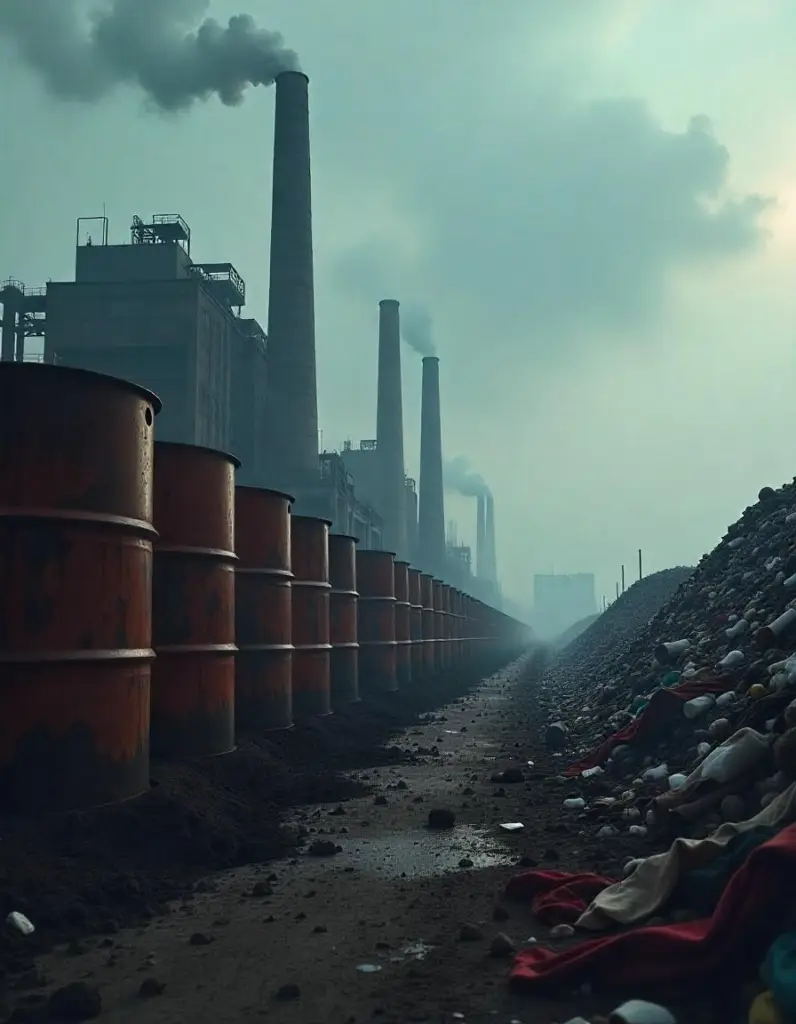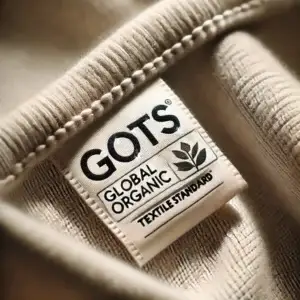We independently research and gather customer feedback on everything we recommend. When you buy through our links, we may earn a commission. Learn more >
What’s in Your Clothes?
We wear clothes every day, but do we ever stop to think about what they’re made of? Polyester, nylon, and other synthetic fabrics may seem harmless, but they’re loaded with toxic chemicals, petroleum-based fibers, and microplastics that can harm both our health and the environment.
In this blog, we’ll cover:
- The harmful effects of polyester on the body.
- How synthetic clothing contributes to environmental pollution.
- Why organic fabrics like organic cotton, hemp, linen, wool, and silk are safer, breathable, and better for the planet.
Dangers of Polyester & Synthetic Clothing
1. Polyester = Plastic on Your Skin
Polyester is a synthetic fiber made from petroleum, the same material used in plastic bottles. Every time you wear polyester, you’re essentially wearing plastic, which doesn’t breathe and can trap heat, sweat, and bacteria.
2. Polyester Releases Toxic Chemicals
Most polyester clothing contains:
- Formaldehyde & Flame Retardants – Known to cause skin irritation, allergies, and hormonal disruptions.
- PFOAs & PFAS (Forever Chemicals) – Found in water-resistant clothing and linked to cancer, infertility, and thyroid issues.
- Heavy Metals & Carcinogenic Dyes – Absorbed through the skin over time.
3. Microplastics & Environmental Damage
Each time you wash polyester clothing, thousands of microplastic fibers shed into the water system, polluting oceans, harming wildlife, and contaminating drinking water. These fibers:
- Never fully break down in nature.
- Bioaccumulate in the food chain, meaning we’re eating and drinking plastic over time.

Why Organic Fabrics Are Better for You & the Planet
1. Organic Cotton – Soft, Breathable & Chemical-Free
- Grown without pesticides, making it safer for farmers and consumers.
- 100% biodegradable and gentle on sensitive skin.
- Absorbs moisture naturally, preventing bacterial buildup.
2. Hemp – The Most Sustainable Fabric
- Antibacterial, mold-resistant, and UV-protective.
- Becomes softer over time and lasts longer than cotton.
- Requires 50% less water than conventional cotton.
3. Tencel (Lyocell) – The Silky Soft, Eco-Friendly Alternative
- Made from sustainably sourced wood pulp (like eucalyptus).
- Biodegradable, moisture-wicking, and ultra-soft.
- Uses 80% less water than traditional cotton production.
4. Linen – The Timeless, Airy Fabric
- Made from flax plants, requiring little water and zero pesticides.
- Naturally breathable and durable.
- Biodegradable and gets softer with each wash.
5. Organic Wool – Natural Temperature Regulation
- Ethically sourced wool (Merino & Alpaca) is cruelty-free and biodegradable.
- Keeps you warm in winter and cool in summer.
- Resistant to odor and moisture buildup.
6. Peace Silk – The Ethical Alternative to Regular Silk
- Unlike conventional silk, peace silk (Ahimsa silk) is harvested without harming silkworms.
- Naturally shiny, luxurious, and breathable.
- Completely biodegradable and free from synthetic treatments.
How to Transition to an Organic Wardrobe

- Check Labels – Look for certifications like GOTS (Global Organic Textile Standard), OEKO-TEX, and Fair Trade Certified.
- Buy Less, Choose Better – Invest in timeless, high-quality organic clothing instead of fast fashion.
- Wash Smarter – Use cold water and a Guppyfriend bag to catch microplastics from synthetic clothes.
- Support Ethical Brands – Buy from brands that prioritize sustainability, ethical labor, and non-toxic dyes.
Final Thoughts: Make the Switch to Organic Fabrics
Your clothing should be safe, comfortable, and environmentally responsible. Polyester and synthetic fabrics might be cheap, but they come at a high cost to our health and the planet. By choosing organic cotton, hemp, linen, wool, and other natural materials, you’re making an investment in better health, sustainability, and ethical fashion.

Comments are closed.